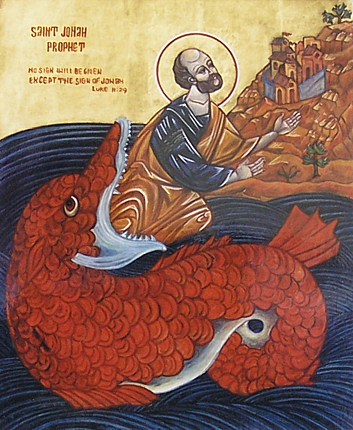Saturday in the Octave of Easter, April 15, 2023
(click here to listen to or read today’s scriptures)
Moving through religion into faith
Looking into the future, I imagine I’ll be driving as we read these words. Driving for the 22nd time since December 2020 from Austin to Urbana, along highways slick with memories and semi-trucks and occasional far-too-fast wild driving boys and girls. Always (usually?) young, and I slow down to get away.
Observing the boldness of Peter and John the leaders were amazed and then recognized them as the companions of Jesus. And they saw the man who had been healed standing right there with them. What are we to do with these men? Let us give them a stern warning never again to speak to anyone in his name.
Ya think?
Sharp as an eraser, those guys, those scribes and priests.
Sometimes I skip Dallas, take an extra half hour and drive through east Texas from Waco to Texarkana. And sometimes I visit Casey and Michelle on that trip, my Episcopalian priest friend who loves his Bible. Casey now works with inmates on parole from the Texas Department of Criminal Justice, one of the world’s largest prison systems (Everything’s Bigger in Texas) as well as preaching at a not-too-far-away small church whose parishoners appreciate his somewhat idiosyncratic approach to preaching.
It is impossible for us not to speak about what we have seen and heard!
I think of Casey and my brother-in-law Jim, retired rector who preaches most every week, and I think of how much they have passed through religion into faith.
Which is a fascinating subject, and I want to get right to Richard Rohr’s thoughts about it. But first, well, isn’t that just what is happening to Simon Peter? His odyssey from Galilean fisherman living in the moment with little thought of heaven or the future … to Jesus’ right hand man, even building tents on the mountain for Elijah and Moses … to three times denier beside the first fire and dead man in his own eyes … to forgiven forgiven forgiven beside the second fire … and now! Let the Holy Spirit speak like cannon blasts from Peter’s mouth and watch everyone fall on their faces before God’s words, through Peter.
Peter has moved through religion … into faith. See what I mean:
Jesus said, “No sign will be given except the sign of Jonah.” —Matthew 12:39
This strong one-liner of Jesus feels rather amazing and largely unheard. He even says it is an “evil age” that wants anything other than the simple sign of the prophet Jonah. He says it is the “only sign” that he will give.
This is indeed unsatisfying. For it is not a sign at all, but more an anti-sign. It demands that we release ourselves into the belly of darkness before we can know what is essential. It insists that the spiritual journey is more like giving up control than taking control. It might even be saying that others will often throw us overboard, and that we get to the right shore by God’s grace more than right action on our part. It is clearly a very disturbing and unsatisfying sign.
Faith is precisely no-thing. It is nothing we can prove in order to be right or use to get anywhere else. If we want something to believe in (which is where we all must start), we had best begin as Christians with clear ground, identity, and boundaries. But that is not yet faith! That is merely securing the foundations for our own personal diving board.
Faith is the leap into the water, now with the lived experience that there is One who can and will catch us—and lead us where we need to go. Religion, in some sense, is a necessary first half of life phenomenon. Faith is much more possible in the second half of life, not necessarily chronologically but always spiritually.
To paraphrase Danish philosopher Søren Kierkegaard (1813–1855), “Life must be lived forward, but it can only be understood backward.” Jonah knew what God was doing, and how God does it, and how right God is—only after emerging from the belly of the whale. Until he has first endured the journey, the darkness, the spitting up on the right shore—all in spite of his best efforts to avoid these very things—Jonah has no message whatsoever to give. Jonah is indeed a symbol of transformation. Jesus had found the Jonah story inspiring, no doubt, because it described almost perfectly what was happening to him.
Learning how to trust time in the belly of the whale, how to stay there without needing to fix, control, or even fully understand it, waiting until God spits us up on a new shore – this is what we are forced to do in what is called “liminal space.” I believe all in-depth transformation takes place inside of liminal space. To hope too quickly is to hope for the wrong thing. The belly of the whale is the great teaching space, and thus it is no surprise that Jesus said this was the only sign he was going to give (Luke 11:30).
Can I relax into this idea, and gradually live faithfully right here and right now, free from worry or regret?
I shall not die, but live, and declare the works of the Lord. Though the Lord has indeed chastised me, yet he has not delivered me from death. I will give thanks, for God answers me.
(posted at www.davesandel.net)
#
